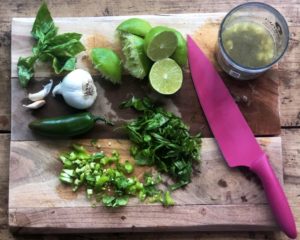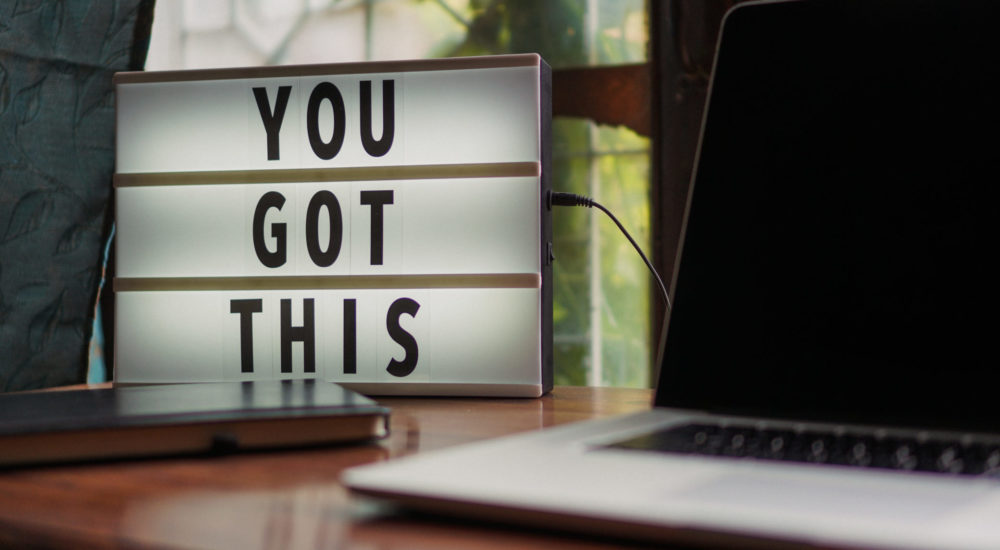Keeping children at the center of our work means taking care of ourselves. Last year I wrote an article for the BOOST Breakfast Club Blog called Self-Care Ideas: Give 1/Get 8. The idea was to crowdsource ideas from a few educator friends to learn more about the daily self-care practices that help them stay resilient. For this post, I’m excited to share a reboot of that article featuring 7 more friends and their answers to the questions in CASEL’s Give 1/Get 8 worksheet. I hope their ideas inspire you.
Julee Brooks, Chief Executive Officer, Woodcraft Rangers
How do you make time for exercise, and what kind of exercise do you like to do?
Time is difficult to come by working from home and schooling two kids — all in an 800 sq. ft house! So, I rely on my stationary bike. Using a mobile app, I get a good sweat, great music and some inspiration — both a physical and mental release. I find that if I do it first thing, my energy is higher and my spirit is stronger for my work and family. Checking it off my list feels like something I can control these days!
Cameron Corder, CEO, Cleveland County Family YMCA
 What do you do during the week to nurture your spiritual health?
What do you do during the week to nurture your spiritual health?
My faith asks me to love and serve others, so I try to be diligent in writing handwritten letters to people – staying focused on sharing an inspirational bible verse or quote.
What strategies do you use to eat healthy?
Healthy eating is a struggle for me, but recently my wife and I have been shopping at the farmers market and cooking together and experimenting with new recipes. Not only are the meals healthier but the activity together with my wife has given me support I need.
Christie Bruner, Community Engagement Supervisor, Healthy St. Pete
How do you make time for exercise, and what kind of exercise do you like to do?
The only time I typically have to exercise is in the early mornings. Luckily, our city of St. Petersburg, Florida has a wonderful waterfront park system that I enjoy while running a few days each week. This is not only a much-needed physical workout, but also a mental break to take some time for myself to practice gratitude.
Laurie Stradley, Chief Program Officer, Healthier Generation
How do you care for yourself when you’ve had an upsetting or stressful day?
My most important coping strategy is to check-in with my “go to” people and tell them. I tell my husband. I tell my nine and six-year-old kids. I text my sister. I let people know where I am. I’m honest that I’m feeling fragile or unsuccessful or just plain angry. Giving voice to my feelings helps me deal with them directly so that I don’t lash out and bring people down with me. Telling people won’t bring them down, but my unvoiced feelings and bad attitude will. That last part took a lot of learning and practice to realize.
Maureen Neumann, Program Manager, National Recreation and Park Association
 What strategies do you use to eat healthy?
What strategies do you use to eat healthy?
I’ve been aiming to really understand where the food I eat comes from. I have been planning a few meals each week that exclude animal protein and include extra in-season produce. There are so many fresh fruits and veggies that can be the star of meals, and I’ve been having fun trying new recipes from NRPA’s Plant-Based Food Guides! I really love making a big bowl with whole grains (farro is my favorite!), grilled veggies, and a homemade vinaigrette.
How do you make time for exercise, and what kind of exercise do you like to do?
I like to exercise first thing in the morning; it’s a great way to set the tone for the day. Being home through the COVID-19 pandemic has provided so many opportunities to try virtual classes that I normally wouldn’t try – like barre! I’ve also joined a virtual running group with my park and recreation colleagues as we get ready for the 2020 NRPA Virtual Annual Conference 5K Walk/Run/Roll in October. While we can’t be together for the race this year, it’s fun to all work toward the same goal!
Nadav Sprague, CEO and President, Gateway to the Great Outdoors
 What morning routine helps you prepare emotionally for the day?
What morning routine helps you prepare emotionally for the day?
Every morning, I try to wake up 2-3 hours before I have to start work (even if that means a 6 AM wake up). I then alternate between two different morning routines. The first is that I take my dog for a 2-hour walk, making sure to admire the beauty of my surroundings (both natural and built), while sipping on a cup of coffee. On day two, I walk my dog for just 5-10 minutes, and then do a 30-60 minute at home workout. Once I finish my walk or workout, I drink plenty of iced green tea and water as I look through my emails and calendar. This routine makes sure that I am prepared for the day ahead.
Patricia Redd, External Partnerships Coach, Chicago Public Schools/Community Schools Initiative
What strategies do you use to eat healthy?
It has been a little challenging working from home, especially because my workspace is right there in the kitchen with the refrigerator and the pantry staring me in the face. So, to take the healthier course of action, I make sure I have fewer unhealthy foods in my house, and only buy them for special treats. It has been working so far.
Thank you Julee, Cam, Christie, Laurie, Maureen, Nadav and Patricia for sharing your self-care strategies. Most importantly, thank you for the work you do to support children and families.
Now readers – it’s your turn to add to the list!
Pick a question from Give-1-Get-8 and share your answer with me on Twitter. Tag a few friends and invite them to join the fun!
Are you looking for additional inspiration for self-reflection and self-care? Check out the resources in Healthier Generation’s new Feeling Healthy at Home collection.
For breakfast, I had a peanut butter and jam sandwich.
Author: @danielh
